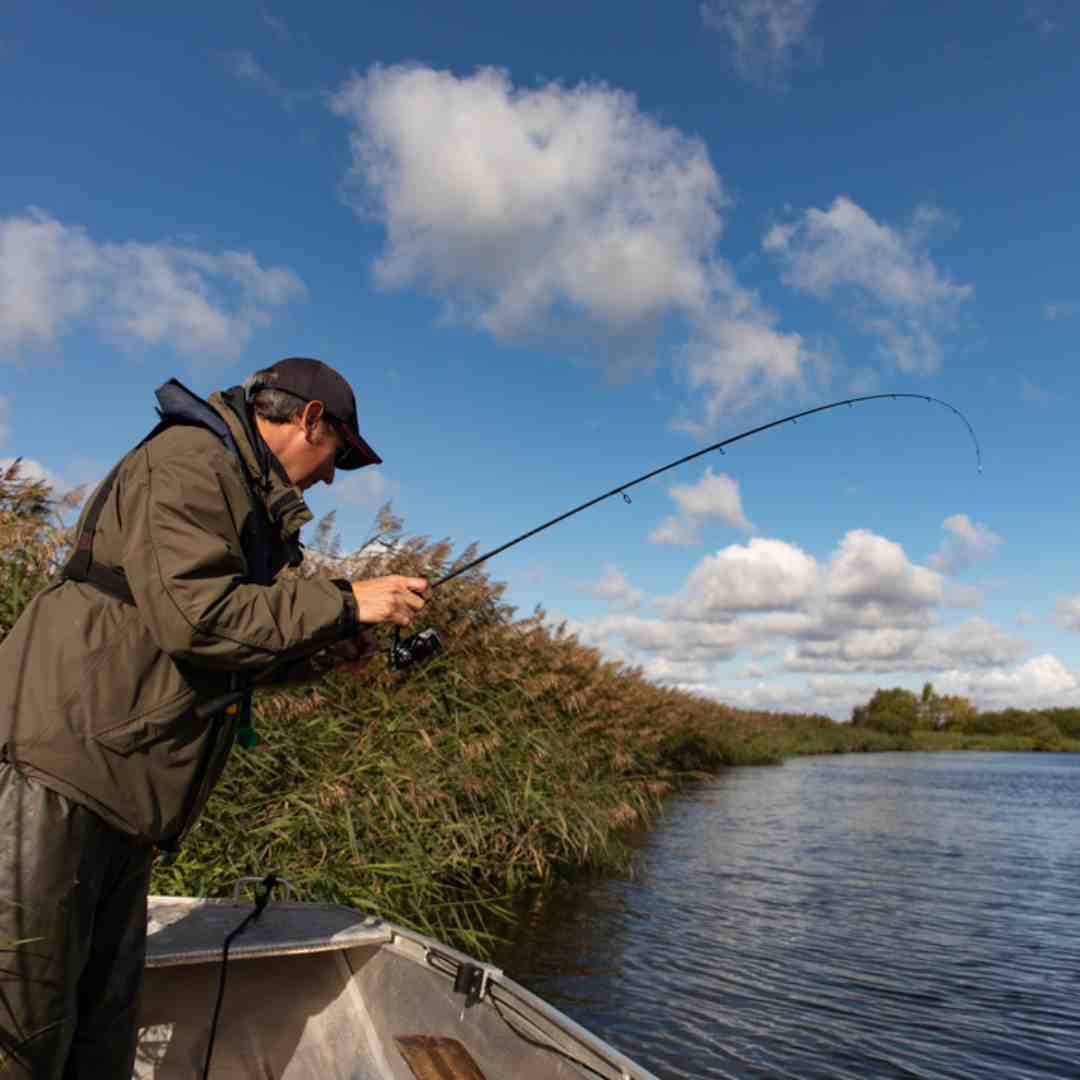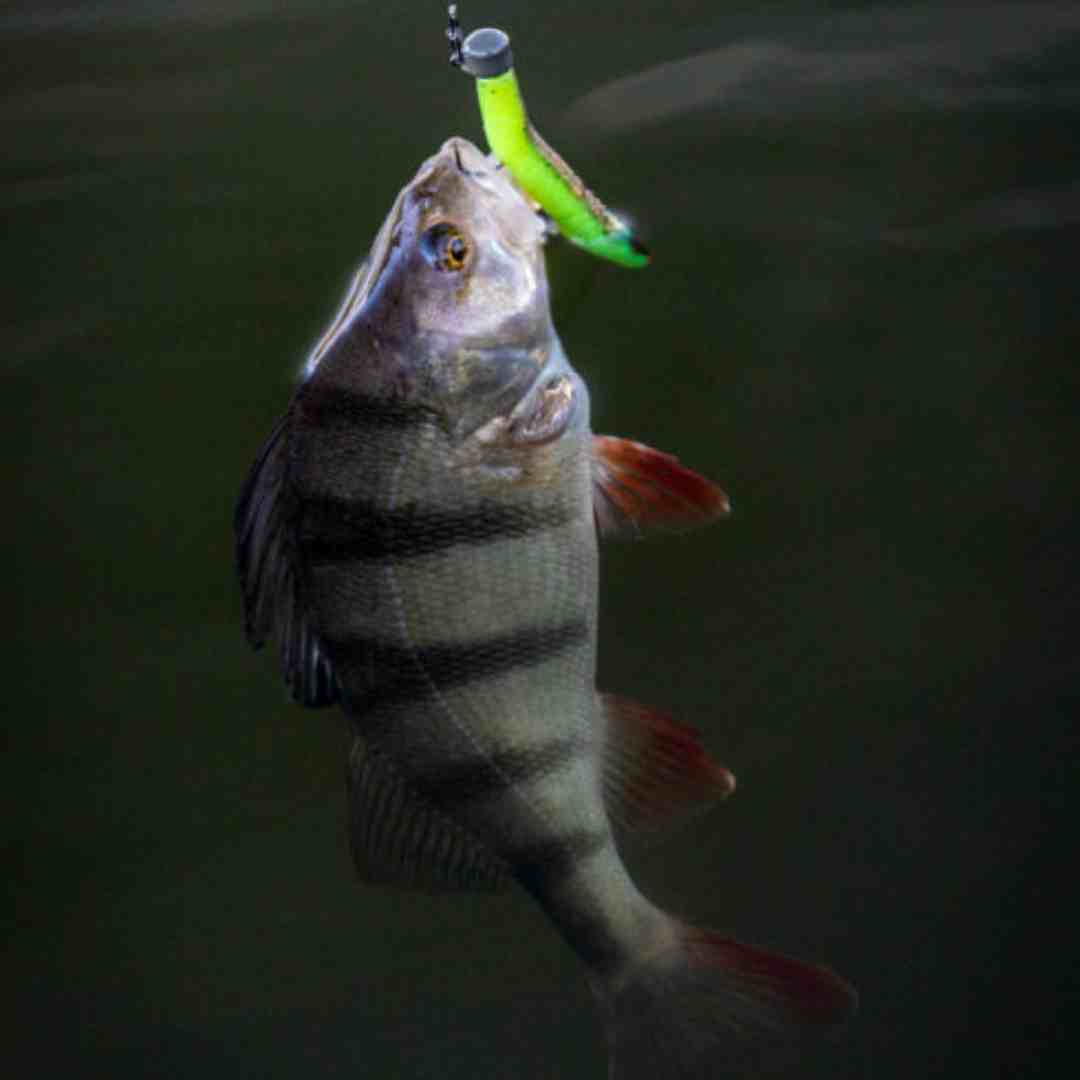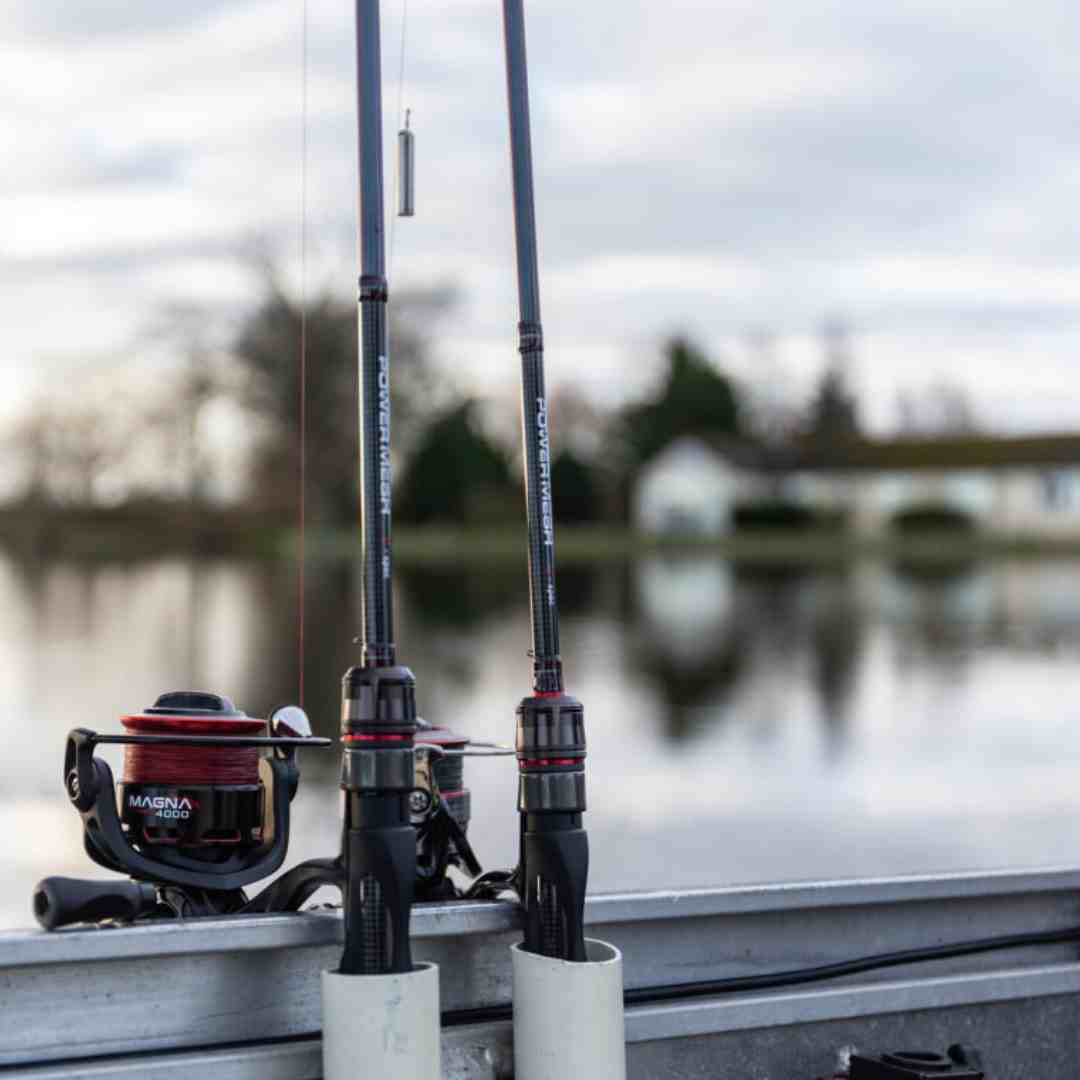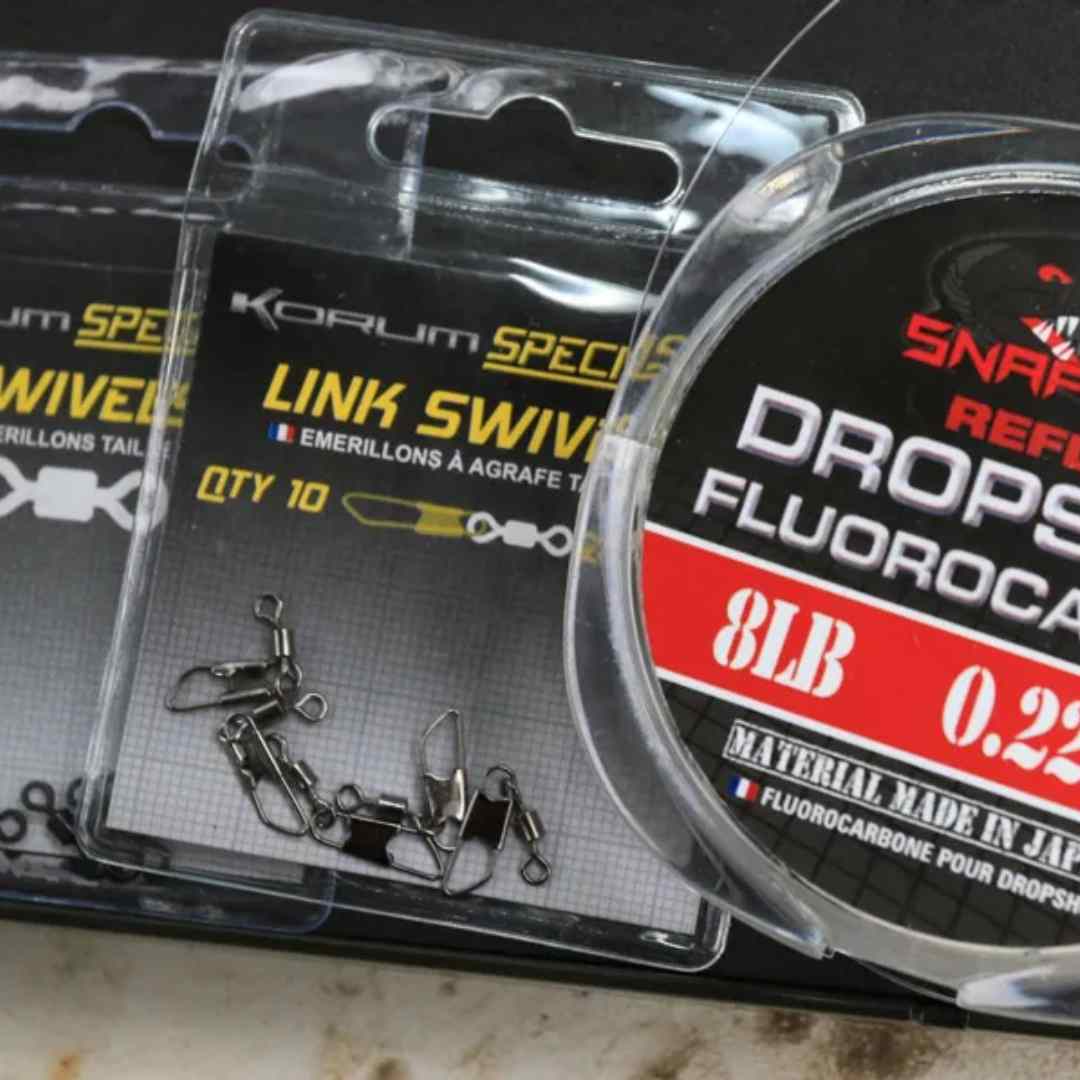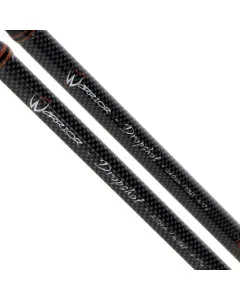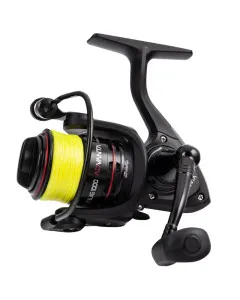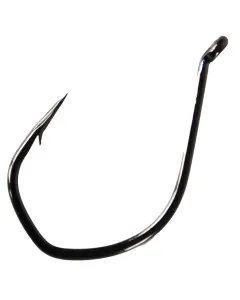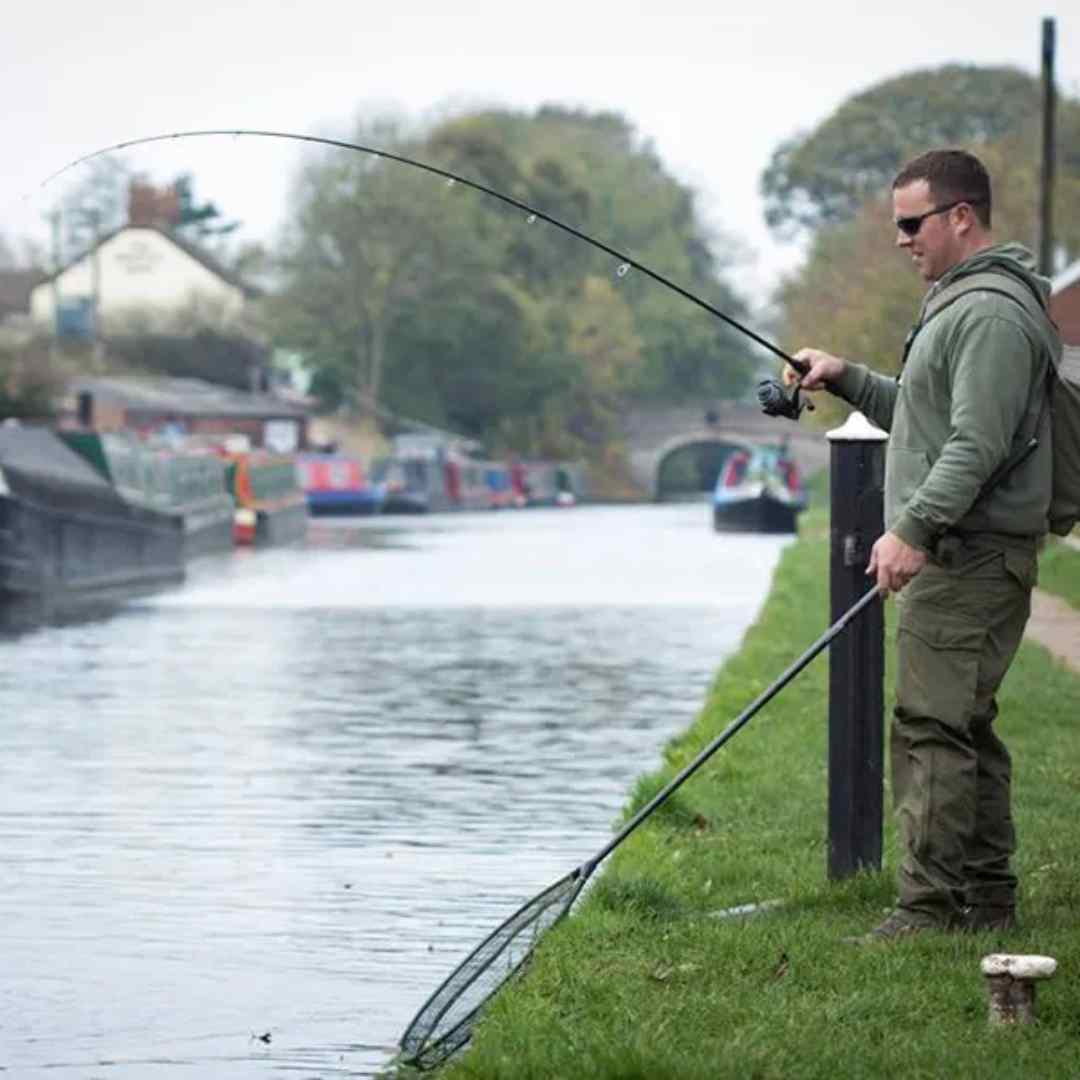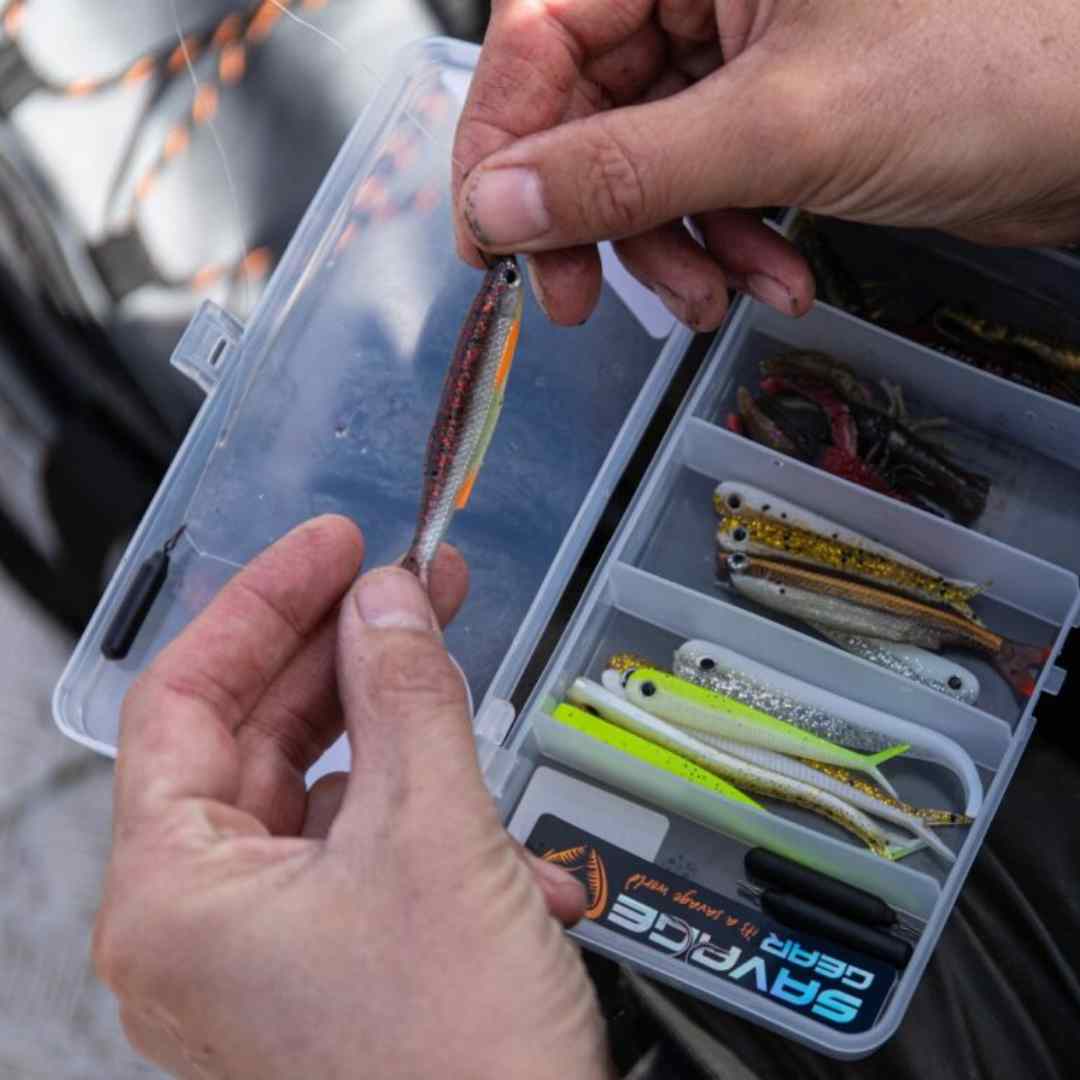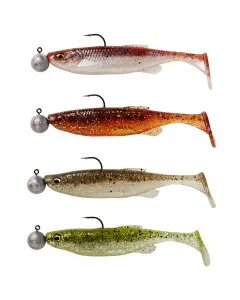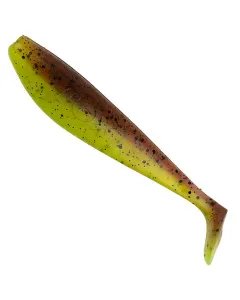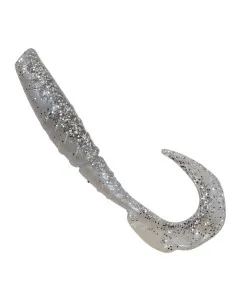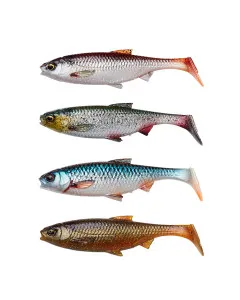How To Drop Shot for Perch
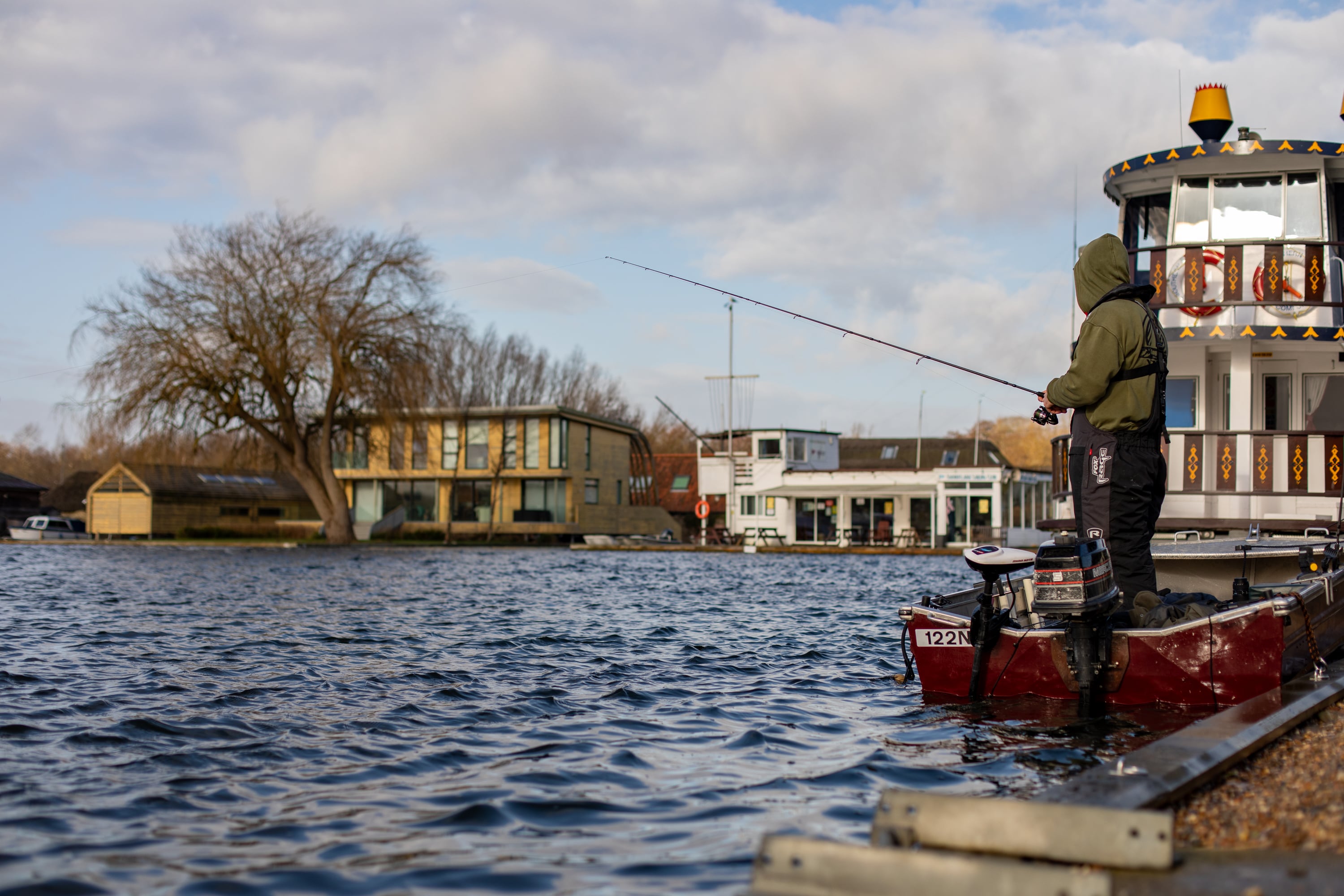
Drop shotting has rapidly become a popular lure fishing method for perch, spreading among anglers with incredible speed. It's an active, dynamic technique that's easy to learn, fun to practice and requires minimal gear.
This method is particularly advantageous in winter, offering a quick and effective fishing option for those short on time. This article delves into the nuances of the dropshot method, a technique that shines on its best days and adds excitement to the fishing experience.
Why is drop shot so effective?
Drop shot fishing, also known as finesse fishing is a hybrid technique blending elements of jigging and spinning. It's a method that employs light tackle to present a lure or baited hook, commonly used for targeting perch but equally effective for other predatory species like pike and zander.
Gaining popularity in the UK, this technique is especially noted for its effectiveness in boat fishing. This method involves using soft plastic lures and offers precise control over the action, speed, and depth of the lure.
Its primary benefit lies in its ability to suspend a sinking lure at any desired depth, making it effective for catching wary or less active fish. This ultra-light method of lure fishing used mainly to target perch, is not only awesome fun but is also very cost-effective and addictive.
What is drop shotting for big perch?
Dropshot fishing offers a thrilling experience in catching perch, allowing anglers to feel every subtle bite and knock. This finesse technique becomes highly effective once you locate the perch’s hideouts.
Drop shot fishing targets smaller predatory fish like perch, zander, and pike with a unique presentation. Unlike traditional lure fishing, the drop shot technique involves a fluorocarbon leader with a hook tied a certain distance from the end, where a specialised dropshot weight is attached.
The rig is completed with a small rubber lure, and subtle lure movements are key to attracting fish.
Dropshot fishing is often mistakenly used as a catch-all term for any perch fishing with lures, but it's far more specific and technical than that. This method demands specialised knots, unique equipment, and a distinctive retrieval style, differentiating it from standard jig techniques.
When Should I Use a Drop Shot?
Dropshotting shines in scenarios where fish feed on smaller prey like fry, worms, larvae, and bloodworms. While we all love the thrill of perch aggressively hitting large baitfish patterns, some days require the finesse of dropshotting for success.
What is the Best Setup for a Drop Shot?
The beauty of drop shotting lies in its simplicity. All you need is a light rod and reel, a few essential terminal tackle pieces, and a selection of small lures. A balanced setup is key. Be sure to select a rod with a sensitive solid carbon tip for precise lure control and lures that the rod can handle well. Additionally select a reel that complements the rod, offering lightweight handling.
Reel Selection for Dropshotting
A fixed-spool reel is preferable for its ease in casting lighter weights and managing the separation between weight and lure. Drop shot reel sizes between 1000 to 2500 are suitable for perch, balancing casting weight and bait size.
A small, lightweight fixed spool reel (1000 to 2500 size range) is perfect, as it's comfortable to hold for extended periods.
What kind of fishing rod for drop shot?
A 6-8ft rod with a soft tip yet strong backbone is ideal for detecting subtle bites and ensuring effective hook setting. Both specialised dropshotting rods and other light lure rods can be used, with the former offering greater versatility for tight budgets.
Specialised dropshot rods are available with a stiff midsection for setting hooks and a light tip for lure action. Select a rod with a sensitive tip for detecting subtle bites. For drop-shotting, a 0-15 gram model is ideal.
Choosing the Right Line and Leader
For heightened bite detection, a 6-8lb braided main line with minimal stretch is recommended, coupled with a fluorocarbon leader for presenting the hook and attaching the weight.
A thin braid (0.06 to 0.10mm) is preferred for its zero stretch, enhancing lure movement and bite detection. It also casts better than monofilament. A 2ft fluorocarbon leader, with a breaking strain suited to the venue and fish size, is typically used. It's attached to the braid with a knot or micro swivel.
How Do Your Rig a Dropshot?
Drop shot rigs for perch require smaller hooks to accommodate the perch's smaller mouth. Drop shot hooks are uniquely shaped to keep the lure horizontal in water. They are fine-wired but larger than typical match hooks. Some anglers prefer using small match fishing hooks down to a size 14.
The ideal drop shot fishing rig consists of a weight at the line's end and a specially knotted hook that positions the lure perpendicularly, offering an optimal presentation. The palomar knot is the best drop shot knot choice for attaching the hook, ensuring it sits at a right angle to the leader.
Setting up the dropshot rig is straightforward.
- Use an arm’s length of fluorocarbon, doubled over to thread a size 4 dropshot hook.
- Tie the drop shot hook with a Palomar knot
- Ensure it stands perpendicular to the line
- The rig is then attached to the braid with back-to-back grinner knots
What weight should I use for a drop shot?
Traditional split shot weights are still effective, with modern versions like small pear-shaped weights or custom-made drop shot pencil weights allowing for adjustable fishing depths. Caution is advised when using clip designs to prevent line damage. Pencil dropshot weights can be added to adjust the depth throughout the day, with sizes usually not exceeding 10g.
Dropshot weights are either ball or pencil-shaped. Lighter weights are better for bite detection, with the weight-adjusted based on water depth and current.
What is the Best Drop Shot Bait for Perch?
Popular lures for drop shotting perch include rubber imitation fish, ranging from 1 to 3.5 inches. Colour preference is subjective, with some anglers favouring dark or dull hues and others opting for brighter colours. Experimentation is key; if one lure doesn’t work, switch it up. Natural baits like worms can also be highly effective, particularly in winter when their scent can make a difference.
Perch fishing lures, typically up to 3 inches, are crucial for attracting bites. Their tail shape and colour vary, impacting vibration and visibility in the water. It's advisable to carry a variety and switch them up to find the most effective one.
Lure Choices for Dropshotting
A great drop shot lure tends to have slim profile, reflective body, durability, and rapid tail action. It's designed to mimic the vibration of small prey fish, and can help catch the biggest perch.
In clear and cold conditions, where fish rely more on sight, opt for worm-like, pin-tail, or fork-tailed baits. Sometimes, trimming the tail off a minnow lure adds just the right fluttering action for cold water.
Dropshotting Techniques
Dropshotting allows for varied retrieves, from quick lifts and falls to subtle movements that focus on animating the bait rather than the weight. Try holding the rod at a steep upward angle, using small shakes, wiggles, and taps to provoke a feeding response.
Advanced Lure Fishing Techniques
One effective technique is to create gentle pulses in the line, mimicking the movement of a dying prey fish. This can be especially productive in moving water, where holding the bait steady lets it drift naturally in the current.
Incorporating tactics from various fishing disciplines can enhance success in dropshotting. This includes exploring different lure presentations and rigging styles to adapt to varying fishing conditions and perch behaviours.
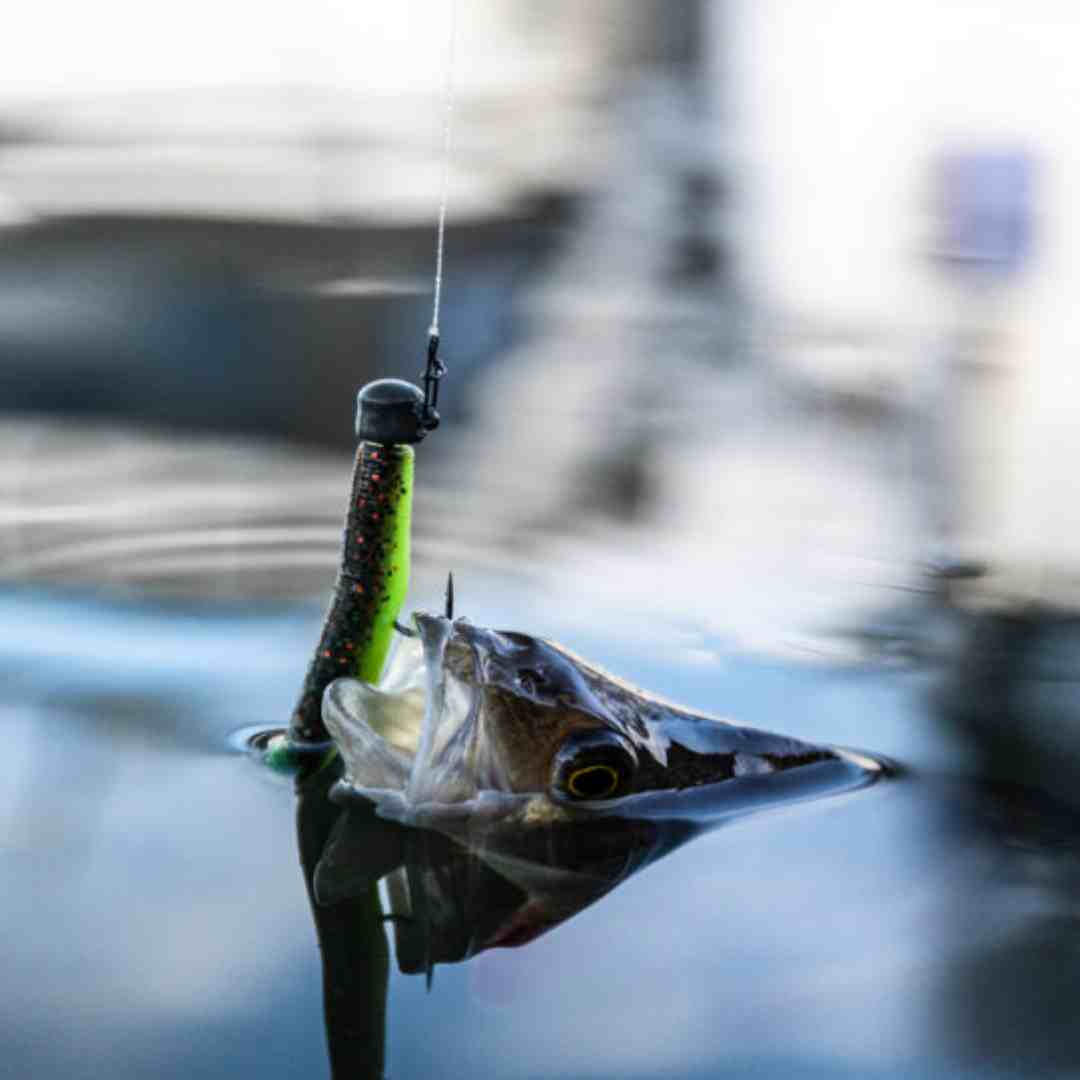

A Mobile Fishing Strategy
Adopt a mobile strategy, targeting areas around structures like bridges, canal boats, and calm waters. These areas are perch favourites. The bites can range from faint knocks to aggressive strikes, sometimes requiring forceps for safe lure removal.
Boat Fishing with Drop Shot Technique
In boat fishing, drop shotting involves positioning the weight on the riverbed while presenting the bait higher in the water. Anglers lower the rig to the bottom, then lift and lower it to attract fish and encourage bites.
This method has shown significant success in coarse fishing, outperforming other techniques when traditional baits fall short.
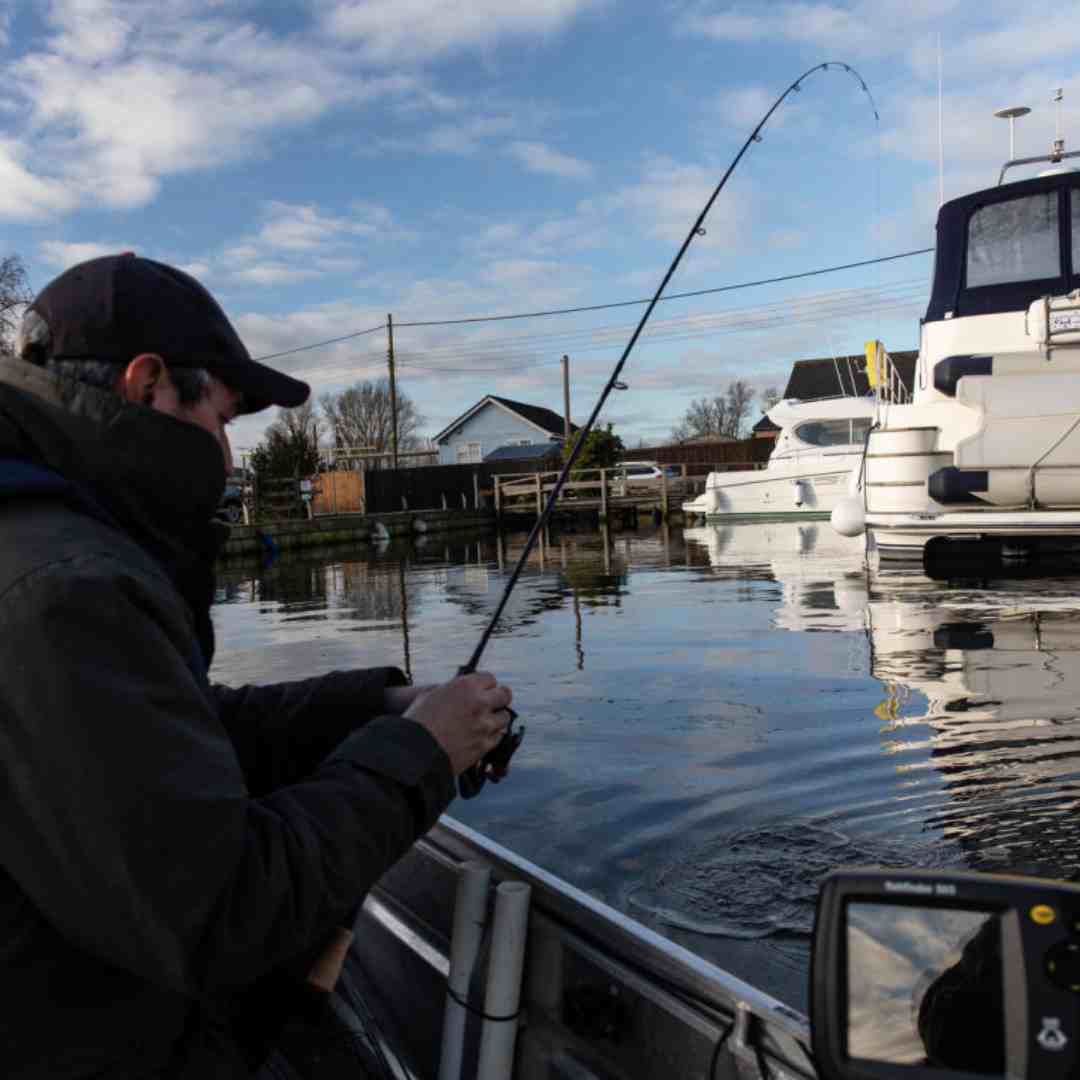

Presentation Techniques for Dropshotting
Dropshotting allows for controlled depth presentation, offering alternatives to traditional jigging methods.
- Deadsticking: where the lure is gently wiggled while stationary
- Crawling: involves a slow, steady retrieve along the bottom
How Do You Fish a Drop Shot?
The technique involves keeping the weight on the bottom and gently moving the lure to entice a bite. This method is especially effective in tight spaces or near features where predators lurk.
Cast to potential fish-holding spots like under trees, near reeds, or alongside structures. This approach keeps the lure in the target zone longer, giving perch a better chance to strike. Continuously cast to various spots, trying different lures or baits. Cover all water areas and adjust techniques to find what works best in your fishing environment. Maintain a slightly slack line to the weight, and use gentle tip motions to animate the lure.
Let the weight settle on the bottom and use slow, jiggling movements of the rod tip to animate the lure. Use gentle twitches and lifts of your lure to entice the perch. Experiment with different reeling speeds, depths, and techniques, such as dragging the weight along the bottom. Varying your approach can be key to enticing fish.
Can you drop shot in a river?
Drop shotting thrives in diverse environments like canals, stillwaters, and rivers. These locations are perfect for experimenting with this effective technique.


- Canals: Ideal for drop shotting, especially near locks and marinas where predators tend to hide. Dropshot fishing beside a canal boat, ready to cast into the prime zone
- Rivers: Suitable for slow-moving rivers, with heavier weights used to counteract the flow. Look for slack areas and features like islands.
- Stillwaters: Many commercial lakes allow drop shotting in winter, and park lakes or specimen carp pits can also be promising. Focus on features like drop-offs and overhanging trees for the best results.
Advanced Tips for Dropshotting Perch
1. When it comes to drop-shotting, stealth is key. Use 8-10lb fluorocarbon leaders for a nearly invisible presentation in the clear waters typical of autumn and winter.
2. Try to maintain a respectful distance from the water's edge to avoid spooking fish in prime catching zones.
3. Holding your rod like a pencil offers a refined way to control your lure and feel even the lightest nibbles. This grip technique can significantly improve your sensitivity to bites and the effectiveness of your lure movements.
4. Try adding a small tungsten weight to the hook with a paddle tail lure, enhancing its sink rate and action.
5. A variety of lures can be used, including minnows, pin tails, spikey shads, paddle tails, worms. Depending on the day's conditions, you might need to adjust the lure's distance from the weight to optimise results.
6. A technique borrowed from bass fishermen involves hooking a salt shaker worm 'wacky style' through the middle, offering a unique presentation rarely seen by perch.
7. The optimal times for perch fishing are at dawn and dusk when low light levels play to the perch's predatory advantages.
8. Try switching to a ned rig with a wire trace in pike-heavy waters.
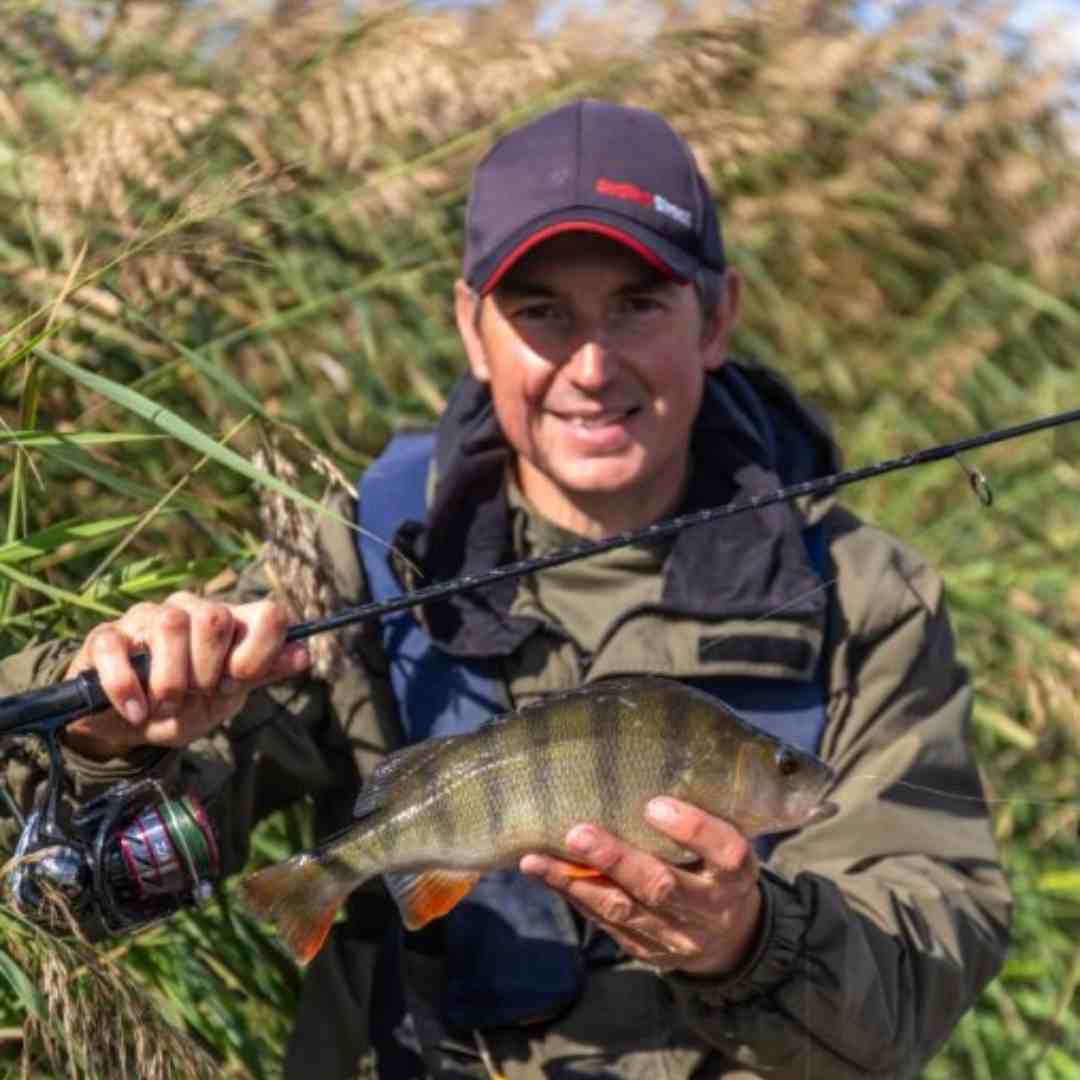

Drop shot fishing stands out as a versatile and effective technique, particularly for perch fishing across various water conditions. Remember, the key is to adjust the depth of your lure and tweak it as needed based on fish activity. This method proves especially useful in cold water, enticing less active fish with its subtle lure presentation.
For anglers seeking to diversify their fishing techniques, drop shotting offers a unique and engaging experience. Its finesse and adaptability make it an invaluable approach, especially when pursuing perch.
Experimentation is key; try different depths, baits, and movements to see what yields the best results in your fishing environment. Embrace the subtle intricacies of drop shot fishing and enjoy the enriching experiences it brings to your angling journey. So, gear up, head out, and enjoy the world of drop shot fishing!
FAQs on Drop Shot Fishing
How deep to fish a drop shot?
To effectively fish a drop shot, the depth can vary based on water conditions and fish behaviour. Generally, start by positioning the lure around 18 inches above the weight. This can be adjusted depending on where the fish are feeding in the water column. In deeper waters, you may need to increase the distance between the lure and weight, and vice versa for shallower areas.
Is a drop shot good in cold water?
Drop shotting is highly effective in cold water. This finesse technique is ideal for targeting fish that become lethargic in colder temperatures. The subtle presentation of the lure near the bottom can entice inactive fish to bite, making it a go-to method for cold-water fishing.
Can you drop shot with live bait?
You can use live bait with a drop shot rig. While artificial lures are common, live bait like worms or minnows can be highly effective when attached to a drop shot hook. This can be particularly successful in enticing finicky or pressured fish.
Do you drag a drop shot?
Try not to drag a drop shot like you would with other rigs. The technique involves subtle movements – gentle shakes, lifts, or wiggles – to animate the bait without moving the weight significantly. Dragging can disrupt the delicate presentation that makes drop shotting effective.
Is fluoro or braid better for drop shot?
Both fluorocarbon and braid have their advantages for drop shot fishing. Fluorocarbon is nearly invisible underwater, making it great for clear water conditions and finicky fish. Braid, on the other hand, offers better sensitivity and zero stretch, which is advantageous for detecting subtle bites.
Many anglers use a combination of both – a braided mainline for sensitivity, paired with a fluorocarbon leader for invisibility.
